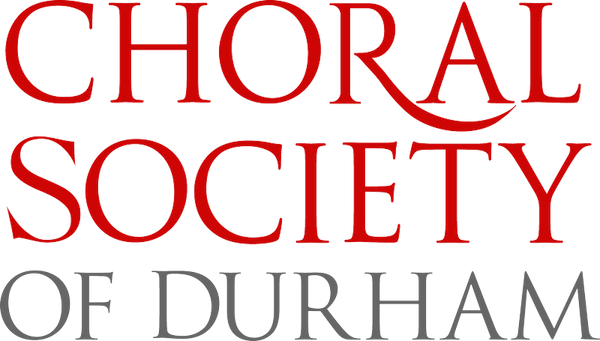William Adams, DMA
Tirso de Molina’s play The Trickster of Seville and the Stone Guest, written in the early 17th century has inspired playwrights, poets, and composers for over 400 years. Don Juan has found realization in works by Molière, Hoffman, Pushkin, Kierkegaard, Shaw, and even Camus. Errol Flynn has even portrayed Don Juan as an evil-fighting swashbuckler who, of course, seduces women. But the most famous portrayal of this character is arguably that of Don Giovanni, composed by Wolfgang Amadeus Mozart to a libretto by Lorenzo da Ponte in 1787. It is one of three titanic collaborations with da Ponte, the other two being Le Nozze di Figaro (1786) and Cosí fan tutte (1790). Don Giovanni is considered by many to be Mozart’s greatest opera, especially when considering its obvious role in the evolution of opera into the nineteenth century.
Sidney Outlaw’s Giovanni is unique. Mr. Outlaw’s voice is more lyrical than most who undertake the role. This lyricism affords him opportunities to explore Giovanni’s powers of seduction by crooning in a beautiful and clear mixed voice the serenade, “Deh vieni alla finestra,” and his duet with Zerlina, “La ci darem la mano.” By contrast, the Champagne Aria was brilliant and virile and showed the full range of expression in his vocal technique. Physically, Mr. Outlaw exuded the appropriate amount of “Baritone Swagger” in creating his cavalier, arrogant, even aloof Giovanni. Even his moments of anger were colored with streaks of suave detachment, showing his belief that he is virtually untouchable.
From his very first entrance from the back of the house through the audience, Branch Fields established himself, and Leporello, as a major physical presence in the opera. In fact, his carriage, his facial expressions, and his manner of interacting with the rest of the cast, evoked memories of the great Samuel Ramey. More impressively, Mr. Fields’ singing also elicited memories of Ramey. His diction was impeccable, even during rapid syllabic passages. His tone was lush and rich but with focus and clarity that easily filled the hall. He is a gifted physical comedian with a delightfully expressive face, athletic eyebrows, and a hint of slapstick as he crawls about the stage and cowers under small tables. His performance of Leporello was complete and a masterclass for those looking to take on the role.
Melinda Whittington’s reading of Donna Anna was always present and engaged. She moved with purpose and energy and always held in her eyes the moment of the scene. Her electric, brilliant tone and effortless coloratura made for a powerful and intense Donna Anna. She showed great control, physically and vocally, and impressive dramatic range between angst and despair and her need for vengeance.
Samantha Anselmo brought a smoldering intensity to Donna Elvira. Her crystal clear soprano glided seamlessly through dynamic and intricate lines. She chose a more reserved physicality for Elvira which brought the attention to her excellent singing and nuanced facial expressions. She sang Elvira with a vulnerability and authenticity that made her more accessible to the audience.
Roderick George sang with such control and ease as to imply Ottavio’s arias are simple. Mr. George’s tenor is lyrical and profoundly expressive. His intelligent and well conceived acting realized Ottavio’s deep love for Anna through understated, reserved mannerisms that only occasionally allowed his frustrations at being unable to enact vengeance to show through.
Despite the Commendatore’s age, he is often portrayed as still robust as he duels Giovanni. Donald Hartmann’s Commendatore, however, faltered and showed frailty which made his murder that much more heinous. This made his return as the Stone Guest, full of fire and brimstone and a resolve as strong and steadfast as his glare all the more satisfying and exciting to witness. Dr. Hartmann’s singing was rich and robust and we were rewarded with an exhilarating D2 as he sent Giovanni to his end!
Christian Blackburn managed the nearly impossible feat of making Masetto relatable. Wielding a sparkling clear and energetic baritone, he revealed to us an insecure and jealous young man whose emotions change drastically nearly every other measure. Mr. Blackburn showed us an endearing, even charming Masetto who is madly in love with Zerlina.
Amber Rose glittered as Zerlina. She sang with a grace and elegance matched only by her movement about the stage with the ease and fluidity of a dancer. Ms. Rose let us feel the giddiness and glee at being pursued by Giovanni but also the depth of her devotion to Masetto.
The orchestra played very well and quite sensitively to the singers. David Holley’s choices were exceptionally musical and showed a deep understanding, not just of Don Giovanni, but of Mozart’s music overall. The orchestra’s presence on stage was brought forth into the production in three charming moments. Rather than play the mandolin solo (or mime doing so), Giovanni brought mandolinist Kevin Dollar out with him. Leporello also made use of the orchestra by briefly usurping Mr. Holley from the podium and at another point attempting to hide from the action next to Susan Young’s harpsichord.
Dr. James Bumgardner’s small but mighty chorus of just fourteen singers were exceptionally well prepared and sang with a surprisingly big and full sound. Each singer was also very well engaged dramatically in each scene.
The only bump in the road with this production were certain anachronisms. The main characters were well costumed in period attire, all of which would have looked amazing in any production. The chorus, however, was not costumed and did not even maintain a consistent look throughout the ensemble. Some wore clothing reminiscent of a Renaissance fair while others looked much more modern. Leporello took a chair from the orchestra, a standard Wenger ensemble chair, when he distracted Donna Elvira, but Giovanni had an appropriately styled chair and table dressings for his meal. None of these were enough to completely distract, but if there were budgetary restrictions that prohibited costuming the chorus, it might have been a better choice to have everyone dressed in modern clothing. This, truly, was the only aspect of the production which drew negative attention.
The overall concept behind the minimalistic staging, the use of the trap door (a necessity!) for Giovanni’s demise (including an excellent lighting effect), entrances through the audience, the handmaiden in the opera box for the Serenade, all worked very well and made for a delightful performance. Indeed, the minimalist set and the small house brought the opera right into the laps of the audience and made for a far more connected experience. The cast could not have been better balanced or more complimentary to each other dramatically or vocally. There was clear chemistry and connection between each singer.
There is a reason why Don Giovanni is one of the oldest operas in continuous production around the world. It stands the test of time at every level with audience and performer alike. It demands much from its performers and forgives little. Greensboro Opera has added another noteworthy and praiseworthy production of Mozart’s masterpiece to its storied history.









